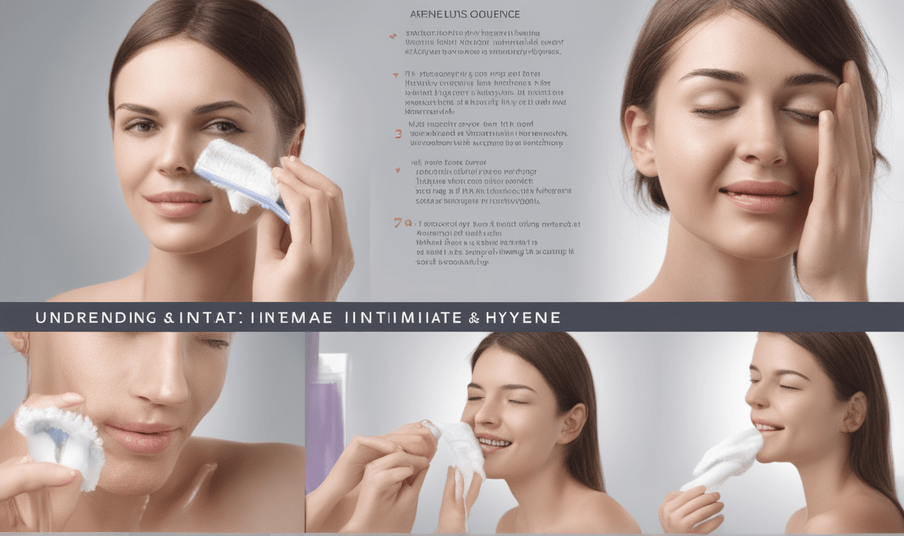Health Tools
Hygiene
Naturopathy
Mental health
More Articles
Intimate Hygiene: The Key to Confidence and Well-being

Intimate hygiene is a content that's frequently overlooked, yet it plays a pivotal part in our overall health and well- being. It's about time we exfoliate light on this essential aspect of particular care. In this composition, we'll explore the world of intimate hygiene, disband common myths, and give precious perceptivity into maintaining good intimate health.
Understanding Intimate Hygiene
Before probing into the finer details, it's vital to grasp what intimate hygiene is. Intimate hygiene refers to the practice of maintaining cleanliness and health in the genital area. This includes both external and internal care, which is inversely important for both men and women.
The Significance of Intimate Hygiene
Good intimate hygiene isn't simply about smelling fresh; it's about precluding infections and discomfort. Neglecting intimate hygiene can lead to issues like urinary tract infections, incentive infections, and indeed affect sexual health. It's an integral part of overall tone- care.
Common Myths and Misconceptions
There are numerous misconceptions girding intimate hygiene. Let's address a many
- Myth: Using perfumed products is better.
- Fact: Perfumed products can disrupt the pH balance and beget vexation.
- Myth: Douching is necessary for cleanliness.
- Fact: Douching can disturb the natural foliage and lead to infections.
Choosing the Right Products
Opting the right products is pivotal for intimate hygiene. Look for mild, pH- balanced cleaners and avoid products with harsh chemicals or spices. Your intimate area is sensitive and deserves gentle care.
Diurnal Intimate Care Routine
Incorporating a diurnal routine for intimate care is essential. It includes gentle washing with lukewarm water and a pH-balanced cleaner. Always flash back to stroke, not rub, the area dry to help vexation.
Intimate Hygiene During Menstruation
Menstrual hygiene is a significant aspect of intimate care for women. Using the right womanlike hygiene products, changing them regularly, and maintaining cleanliness is pivotal during a period.
Intimate Hygiene for Men
Men, too, need to pay attention to intimate hygiene. Regular cleaning, wearing permeable undergarments, and rehearsing safe coitus are important aspects of men's intimate health.
Intimate Hygiene for Seniors
As we progress, the need for intimate hygiene doesn't dwindle. In fact, it becomes indeed more critical. Seniors should take redundant care to help infections and discomfort.
Intimate Hygiene and Sexual Health
Good intimate hygiene contributes to a healthy coitus life. Maintaining cleanliness and agitating enterprises with your mate is essential for a fulfilling and safe sexual experience.
Tips for Maintaining pH Balance
Balancing the pH in the intimate area is pivotal. Avoid using harsh detergents, and consider using pH-balanced products specifically designed for intimate care.
Signs of Poor Intimate Hygiene
Feting the signs of poor intimate hygiene is essential. It includes itching, greenishness, unusual discharge, and a foul odor. However, seek medical advice if you witness any of these symptoms.
Conclusion
Intimate hygiene isn't a content to be shy about. It's a vital aspect of tone- care that directly impacts our health, confidence, and overall well- being. By following the stylish practices and disbanding common myths, you can insure a healthy and comfortable intimate life.
FAQs
What is the stylish way to clean the intimate area daily?
Diurnal cleaning with lukewarm water and a pH-balanced cleaner is ideal.
Can men use womanlike hygiene products?
It's better to use products designed for men's intimate care, but in a pinch, a gentle, scent-free option is okay.
Is it safe to use perfumed products in the intimate area?
No, perfumed products can disrupt the pH balance and beget vexation.
How frequently should womanlike hygiene products be changed during the period?
It's judicious to change them every 4-6 hours, depending on inflow.
Why is pH balance important for intimate hygiene?
Maintaining pH balance helps help infections and discomfort in the intimate area.
Back to Top